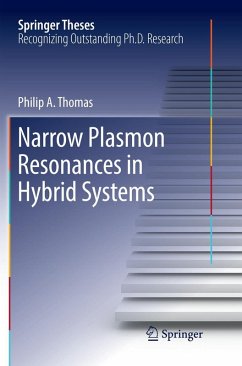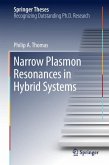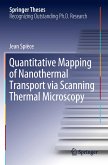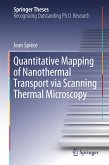Advances in understanding the interactions between light and subwavelength materials have enabled the author and his collaborators to tailor unique optical responses at the nanoscale. In particular, metallic nanostructures capable of supporting surface plasmons can be designed to possess spectrally narrow plasmon resonances, which are of particular interest due to their exceptional sensitivity to their local environment. In turn, combining plasmonic nanostructures with other materials in hybrid systems allows this sensitivity to be exploited in a broad range of applications.
In this book the author explores two different approaches to attaining narrow plasmon resonances: in gold nanoparticle arrays by utilising diffraction coupling, and in copper thin films covered by a protective graphene layer. The performance of these resonances is then considered in a number of applications. Nanoparticle arrays are used along with an atomic heterostructure as elements in a nanomechanical electro-optical modulator that is capable of strong, broadband modulation. Strong coupling between diffraction-coupled plasmon resonances and a gold nanoparticle array and guided modes in a dielectric slab is used to construct a hybrid waveguide. Lastly, the extreme phase sensitivity of graphene-protected copper is used to detect trace quantities of small toxins in solution far below the detection limit of commercial surface plasmon resonance sensors.
In this book the author explores two different approaches to attaining narrow plasmon resonances: in gold nanoparticle arrays by utilising diffraction coupling, and in copper thin films covered by a protective graphene layer. The performance of these resonances is then considered in a number of applications. Nanoparticle arrays are used along with an atomic heterostructure as elements in a nanomechanical electro-optical modulator that is capable of strong, broadband modulation. Strong coupling between diffraction-coupled plasmon resonances and a gold nanoparticle array and guided modes in a dielectric slab is used to construct a hybrid waveguide. Lastly, the extreme phase sensitivity of graphene-protected copper is used to detect trace quantities of small toxins in solution far below the detection limit of commercial surface plasmon resonance sensors.








